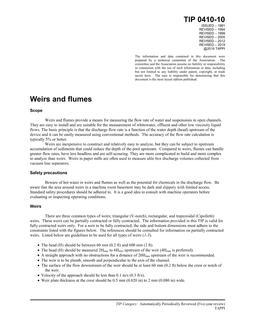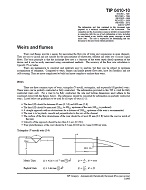
TAPPI TIP 0410-10
- Comments Off on TAPPI TIP 0410-10
- TAPPI
Click here to purchase
Weirs and flumes provide a means for measuring the flow rate of water and suspensions in open channels. They are easy to install and are suitable for the measurement of whitewater, effluent and other low viscosity liquid flows. The basic principle is that the discharge flow rate is a function of the water depth (head) upstream of the device and it can be easily measured using conventional methods. The accuracy of the flow rate calculation is typically 5% or better.
Weirs are inexpensive to construct and relatively easy to analyze, but they can be subject to upstream accumulation of sediments that could reduce the depth of the pool upstream. Compared to weirs, flumes can handle greater flow rates, have less headloss and are self-scouring. They are more complicated to build and more complex to analyze than weirs. Weirs in paper mills are often used to measure uhle box discharge volumes collected from vacuum line separators.
Product Details
- Published:
- 2019
- Number of Pages:
- 4
- File Size:
- 1 file , 400 KB
- Redline File Size:
- 2 files , 3.5 MB


